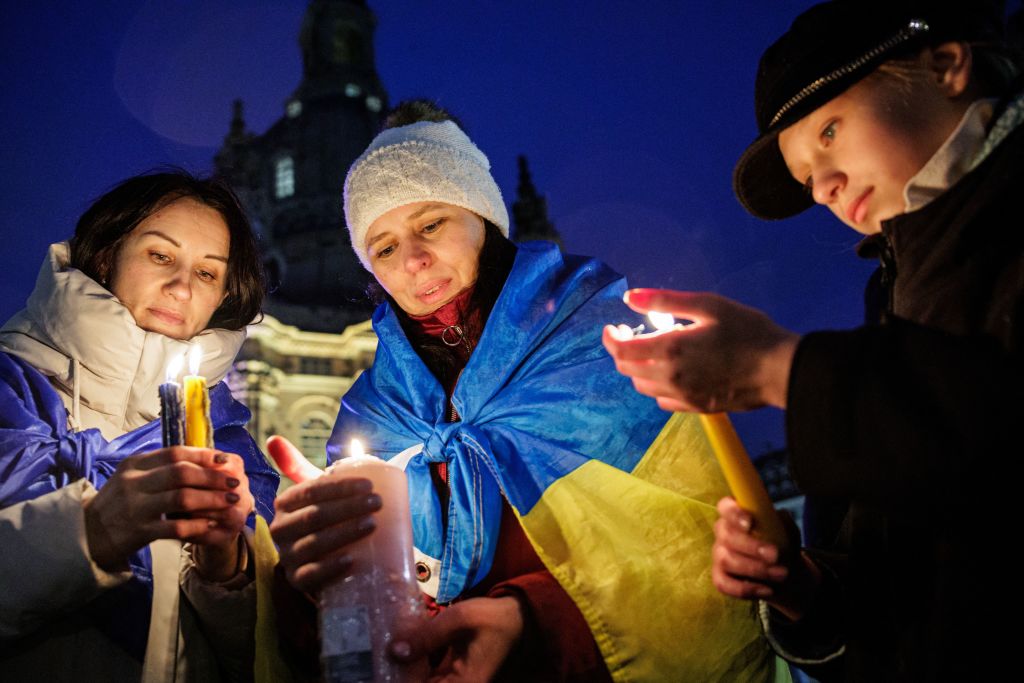Viktor Nestulia: How to build trust for Ukraine’s recovery

Editor’s Note: The opinions expressed in the op-ed section are those of the authors and do not purport to reflect the views of the Kyiv Independent.
Vladyslav Rashkovan, the alternate executive director of the International Monetary Fund (IMF), very accurately formulated Ukraine’s key task: to win the war without losing the peace.
In this battle for peace after the war, the sustained support of our international partners is crucial.
The Ukraine recovery project announced in Lugano last summer will require $750 billion dollars, and implementation will take up to 10 years. This was before the large-scale shelling of Ukraine’s energy infrastructure by Russian terrorists.
The truth is the thought that Ukraine might not get the opportunity to recover has frightened institutional investors since the first discussions of a recovery plan.
This is not surprising, given the international community’s negative experience in other countries, where donor funds have been stolen through corruption and ineffective management.
The scale, number of involved parties, and thus complexity of undertaking a reconstruction project for Ukraine, as well as both the current problems and previous mistakes of Ukraine’s economy, only add to donor concerns.
Let’s be clear: When we talk about money for Ukraine’s recovery, it’s not a charity, but the “salary” for a real A-player who will strengthen the team of developed countries. Ukraine has already proven itself as such, protecting global security from the aggressor country, maintaining food security despite active hostilities, and fulfilling its responsibilities as a reliable financial partner.
Our resume has enough strengths to bolster the confidence of potential investors and interest them in signing a long-term “contract” with us.
Let’s focus on five of these key strengths.
1. Digital solutions for transparent reconstruction
Like its international partners, Ukraine is interested in ensuring that donor funds for reconstruction rebuild the economy and infrastructure, rather than add to someone’s collection of cars and private estates.
This is why Ukraine, with the support of international partners like the IMF, the World Bank, and the G7 countries, is developing a Digital Reconstruction Management System (DRMS). The system’s first version is expected to be announced in the spring of 2023.
It is the only system that collects, organizes, and publishes real-time open data at all stages of Ukraine’s reconstruction projects. Anyone from international donors and investors to journalists and citizens will be able to access information about reconstruction projects – they will be able to check information on projects’ financing, tender documents, progress, and so on.
In other words, anyone in the world will be able to see where the funds have gone and how they are used. It will be almost as easy as tracking a Glovo courier or an Amazon package.
Using DRMS for every project will ensure maximum accountability, transparency, and integrity when distributing funds linked to international aid to reconstruct Ukraine.
2. Ukraine’s successful reform experiences
In 2014, Ukraine was already passing a turning point in its political development.
Successful reforms at the time achieved clear results and international recognition. For example, Ukraine’s e-procurement system ProZorro is ranked among the best in the world, and the World Bank has already recommended using it for its procurement projects in Ukraine.
The country’s banking sector reform has cleared the system of dozens of dishonest banks and transformed the National Bank of Ukraine (NBU) from a set of presidential purse strings into an independent and open regulator.
Energy sector reform has allowed us to get off Russia’s so-called “gas needle,” and the introduction of decentralization has quadrupled local budget revenue in the span of six years.
The list of successful reforms continues.
Active digitalization is among the latest achievements. At the beginning of the year, at least five countries announced their plans to introduce analogs of Ukraine’s Diia app, which allows Ukrainians to keep their digital documents on their smartphones in lieu of physical copies.
Ukraine has become a trendsetter in terms of public administration solutions and the generation of new services that could be useful for our partners.
3. Supporting civil society
Since 2014, almost every significant reform in Ukraine has been driven by the active participation and oversight of civil society. In many cases, such as the healthcare reform or the public procurement reform, the role of non-governmental organizations was decisive.
This time, civil society organizations are not standing on the sidelines, but are actively involved in developing solutions to ensure transparency and preparing to oversee Ukraine’s reconstruction.
Since July, several groups have joined this process, including the RISE Ukraine coalition. The coalition consists of civil society organizations with different areas of expertise that have a long history of successful experience in implementing reforms, socially important projects, and monitoring the actions of the state, especially regarding anti-corruption.
The reputation of Ukraine’s civil society organizations makes them reliable assistants to international partners – from governments and foundations to private companies and investors – in organizing and overseeing the implementation of recovery projects.
4. Developed anti-corruption infrastructure
The development of anti-corruption infrastructure is one of the reforms that has faced the most resistance. However, we can already talk about the significant progress achieved and the institutional capacity of the country’s anti-corruption bodies.
The long-awaited election of the Specialized Anti-Corruption Prosecutor’s Office head has already taken place, and the Anti-Corruption Court, which has already handed down 101 verdicts, is now actively considering cases of confiscation of Russian assets and corruption of top officials during the war.
The fight against corruption in Ukraine has found a second wind in the past couple of months.
Journalistic investigations that have been exposing corrupt officials for years are finally leading to real suspicions and dismissals. The anti-corruption raid leaves no one behind, whether they be local authorities, members of parliament, or Presidential Office representatives.
All branches of government are involved in the fight against corruption.
For example, the Temporary Investigation Commission has been working in the parliament for two months now, investigating abuses and schemes in the bodies responsible for economic security. In February, the leadership of Ukraine’s State Customs was dismissed.
All of this demonstrates the political will and ability of the state to build a transparent process of economic recovery and functioning in the future. Ukraine has enough independent watchdogs to keep it on the right track.
5. Ample opportunities for investment
The final thing investors and donors need to remember is that Ukraine is now their “blue ocean.” Those who invest in the Ukrainian economy now will in 10 years have an enterprise in the EU. There are plenty of opportunities to invest in Ukraine.
Ukraine has a powerful IT industry that creates products that are popular all over the world, it was the only country that even increased its service exports by almost 6% to $7.34 billion during the first year of the full-scale war. In terms of fintech, Ukrainian companies are ahead of even Japan.
The agricultural sector has significant potential, and, despite the war, it managed to harvest 52 million tonnes of grain. Given that the lion’s share of countries on the world map import grain crops and Ukraine is among the few countries that export over 35% of their harvests, the agricultural sector has good prospects for growth and profitability. The open land market gives investors the opportunity to take advantage of this.
Due to the war, Ukraine is already developing the production of military equipment, including UAVs, and there will definitely be related areas to join.
In addition, many industrial and commercial facilities have been destroyed by the fighting. The tragically famous Azovstal steel plant is one of them. While obviously it cannot be restored, it does not need to be, as it can be built as a modernized and more environmentally friendly enterprise, which can be done by a foreign investor.
Ukraine is not a "failed state," but rather like Europe after World War II. We know exactly how to build a developed society and economy because we were already building it before Russia started its full-scale war, putting the process on hold.
Funding for reconstruction will not be wasted money. Funding for reconstruction will be an investment into a powerful team player to support global security and development.
Ukraine has already proved its ability to take a punch and its zeal to reclaim its future. We will rebuild what we have lost with the same fervor and success, and with the help of our partners, we can even build it back better.













